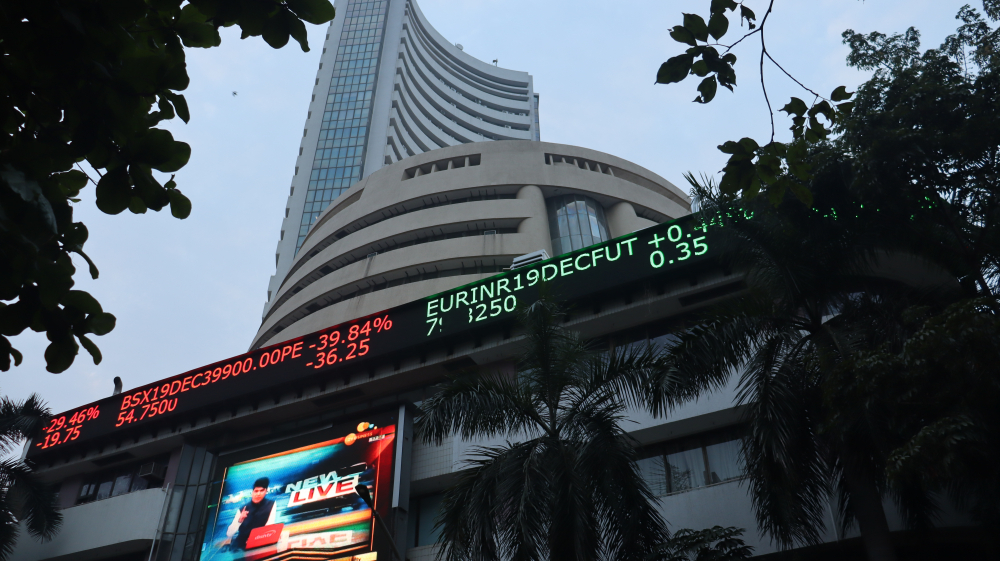
Welcome to the fascinating world of the Indian Stock Market, where fortunes are made and dreams come true. It is a dynamic arena that has played a crucial role in shaping India's economic landscape. From its humble beginnings to becoming one of the fastest-growing markets in the world, the history of Indian Stock Market is an intriguing tale filled with triumphs, challenges, and endless possibilities.
In this blog post, we will take you on an exciting journey through time as we uncover the origins and evolution of the Indian Stock Market. We will delve into key milestones that have shaped its growth, understand the roles of regulatory bodies such as SEBI (Securities and Exchange Board of India), and explore how historical events have influenced its trajectory.
But it doesn't stop there! We will also provide insights into current trends, challenges faced by investors today, and opportunities that await those who dare to venture into this dynamic market. And finally, we will gaze into our crystal ball to predict what lies ahead for India's stock market.
So fasten your seatbelts and prepare for an exhilarating ride through the history of Indian stock market as we unravel secrets from within India's financial powerhouse!
In the early beginnings of the Indian stock market, trading was far from what it is today. The concept of buying and selling shares in various companies was still relatively new and unfamiliar to most people. The history of the Indian stock market began with the formation of the Native Share and Stock Brokers' Association in Bombay (now Mumbai) in 1875.
During this time, trading mostly took place under banyan trees or in coffee houses, where brokers would gather to exchange information and negotiate deals. These informal gatherings laid the foundation for more organized trading platforms that would emerge later.
As India progressed towards independence, there were significant developments in the stock market. In 1947, after gaining freedom from British rule, India faced economic challenges, which led to the government's establishment of The Capital Issues Control Act (CICA). This act aimed to regulate capital issues and ensure fair practices within the stock market.
Over time, these early initiatives paved the way for formalized exchanges such as the Bombay Stock Exchange (BSE), founded in 1875, making it one of Asia's oldest stock exchanges. Soon after the BSE came the National Stock Exchange (NSE), which started its operations in 1994.
The establishment of regulatory bodies like the Securities and Exchange Board of India (SEBI) further strengthened investor confidence by ensuring transparency, protecting investors' interests, and regulating various aspects related to securities markets.
Today, the Indian stock market has come a long way since its humble origins. With advancements in technology and increasing participation from domestic and foreign investors, it has become an integral part of India's economy, offering opportunities for wealth creation and investment growth.

However, this journey has been challenging. Market volatility during times like global financial crises or major political events can significantly impact investor sentiment, causing fluctuations in share prices. In addition to financial crises, the stock market faces the persistent issue of scams. Throughout the history of Indian stock market, numerous fraudulent schemes have surfaced, the most popular being the 1992 Harshad Mehta scam.
Nevertheless, despite these challenges, immense opportunities exist within the Indian stock market for those who understand its dynamics. From blue-chip stocks to emerging sectors, a diverse range of investment options is available for investors.
With India's economic growth and rising investor confidence in the coming years, it is expected that the Indian stock market will continue to evolve and offer even more opportunities for investors.
The evolution of the Indian stock market has been a fascinating journey, marked by significant milestones that have shaped its growth. From humble beginnings to becoming one of the fastest-growing markets in the world, the Indian stock market has come a long way.
One of the major milestones in the history of Indian stock market was the establishment of the Bombay Stock Exchange (BSE) in 1875. It started as an association for brokers and gradually evolved into a fully-fledged exchange, playing a crucial role in facilitating trade and investment activities.
Another significant milestone in the history of the Indian stock market was when India embarked on economic liberalization in 1991. This shift towards a more open economy significantly impacted the stock market, attracting foreign investors and improving liquidity. The introduction of electronic trading platforms further revolutionized how transactions were conducted, making it easier for investors to participate.
In 2000, the National Stock Exchange (NSE) emerged as a strong competitor to BSE by introducing innovative practices like electronic order matching systems and online trading services. This competition stimulated growth and improved efficiency within the Indian stock market.
The year 2014 witnessed another milestone with SEBI's implementation of various reforms to promote transparency and protect investor interests. These measures included stricter regulations on insider trading, enhanced corporate governance norms, and greater disclosure requirements – all contributing to increased confidence among investors.
More recently, India's inclusion in global indices like the MSCI Emerging Markets Index has attracted substantial inflows from international funds. This recognition reflects not only India's growing stature but also signifies opportunities for domestic and foreign investors.
Each milestone in this journey shapes India's stock market. Continuous innovation is vital for its growth, addressing volatility, regulations, technology, and changing preferences. The story is ongoing, with each year bringing new opportunities and challenges. With a strong foundation and a growing economy, the future of India's stock market looks promising for investors.

When it comes to the Indian stock market, two key players stand out - the Securities and Exchange Board of India (SEBI) and the various stock exchanges. These entities play a crucial role in regulating and facilitating trading activities, ensuring transparency, and maintaining investor confidence.
Established in 1988, SEBI is an independent regulatory body overseeing India's securities market. Its primary objective is to formulate rules and regulations that govern capital markets, monitor market participant compliance, investigate frauds or malpractices, and take necessary actions when required.
On the other hand, stock exchanges are platforms where buyers and sellers come together to trade securities such as stocks or bonds. Several prominent stock exchanges in India include BSE (Bombay Stock Exchange) and NSE (National Stock Exchange). These exchanges provide a transparent marketplace for companies to raise capital by issuing shares while offering investment opportunities for individuals.
SEBI goes beyond regulation, actively promoting efficient markets through reforms that enhance transparency, improve corporate governance, and foster innovation in financial products/services while safeguarding investor interests. It ensures that listed companies follow proper disclosure norms for informed investor decisions.
Stock exchanges act as intermediaries, organizing trades and facilitating price discovery through continuous orders. A symbiotic relationship with SEBI enhances trust, bolstering exchange growth and liquidity. Together, they ensure a robust, transparent stock market, supporting India's economy.
The history of Indian stock market is rich and has been shaped by various historical events. These events have significantly impacted the growth and development of the market, influencing investor sentiment and shaping market trends.
One such event happened in 1991 when India's economy transformed, opening the doors to foreign investment and more capital in the stock market. This led to increased trading and more local and global investors.
In 2008, the Indian stock market was affected by the global financial crisis due to Lehman Brothers' collapse. Investors faced uncertainty as they saw steep declines in stock prices, prompting widespread selling.
In recent years, geopolitical tensions such as border disputes with neighbouring countries have also affected the Indian stock market. Government policies and reforms, like demonetization and the Goods & Services Tax (GST), have shaped the market's trajectory, affecting various sectors and long-term investor sentiment.
While understanding the history of Indian stock market is essential, it's important to remember that they don't predict the future. Financial markets are complex and influenced by multiple factors. To navigate these complexities, investors should also consider economic indicators, company performance, and global trends, maintain diversified portfolios, and take a long-term approach to investing.
The history of Indian stock market displays a dynamic landscape marked by trends, challenges, and opportunities. At present, retail investors are flocking in due to accessible online platforms and abundant information. Foreign institutional investors (FIIs) increasingly influence market dynamics, enhancing liquidity.
Regulatory challenges exist within the Indian stock market. While organizations like SEBI (Securities and Exchange Board of India) strive to maintain transparency and protect investor interests, there may still be instances where fraudulent practices or insider trading occurs.
Nevertheless, opportunities abound. The digital revolution fuels growth in tech, e-commerce, fintech, healthcare, and renewable energy sectors. India's growing middle class boosts demand for goods and services, while government initiatives like Make in India create prospects in construction, real estate, and manufacturing.
Apart from the history of Indian stock market, as we look ahead to the future of the Indian stock market, certain key trends and challenges stand out. Anticipate ongoing growth, driven by a robust economy and increased investor interest, which will continue to attract more participants.
Technology plays a pivotal role, with digital platforms and mobile trading apps simplifying stock trading, promoting transparency, and improving accessibility.
Another prediction for the future of the Indian stock market is an increased focus on sustainable investing. Sustainable investing gains momentum as global awareness of environmental, social, and governance (ESG) factors grows, influencing investment decisions in India.
Furthermore, international participation is expected to rise, driven by government initiatives and relaxed regulations for foreign investors entering India's capital markets.
The history of share market in India began in 1875 when the Native Share and Stock Brokers' Association in Bombay was established.
Sensex was introduced in 1986 in India and is the benchmark index for the BSE (Bombay Stock Exchange). It is a basket of shares of 30 largest companies listed on the BSE.
The Indian stock market is rising due to factors like economic growth in India and an increase in foreign investment, and they have a positive outlook on the developments in the rural sector.
The collapse of Lehman Brothers in the United States in 2008 sent shockwaves across the globe, and the Indian Stock Market was not immune to its impact. The Sensex plummeted to a low of 9,000, a significant drop from its previous level of 20,000.
The Indian Stock market has two major exchanges - the NSE and the BSE, where companies list their shares for trading. The traders buy and sell these shares and book profits from the price fluctuations.
The history of Indian stock market reflects India's economic evolution from the 19th century to becoming one of the world's largest and most dynamic markets. Key milestones, like SEBI's establishment and multiple stock exchanges, have built a strong regulatory framework ensuring transparency and investor protection. Historical events, including economic reforms and global crises, have influenced market trends.
Despite challenges, like volatility and external factors, such as global market fluctuations and geopolitical tensions, the Indian stock market continues to expand. Technology-driven platforms have made investing more accessible and efficient for retail investors.
Looking ahead, new trends and opportunities emerge, driven by technology, fintech startups, and digital currencies, promising further growth.
